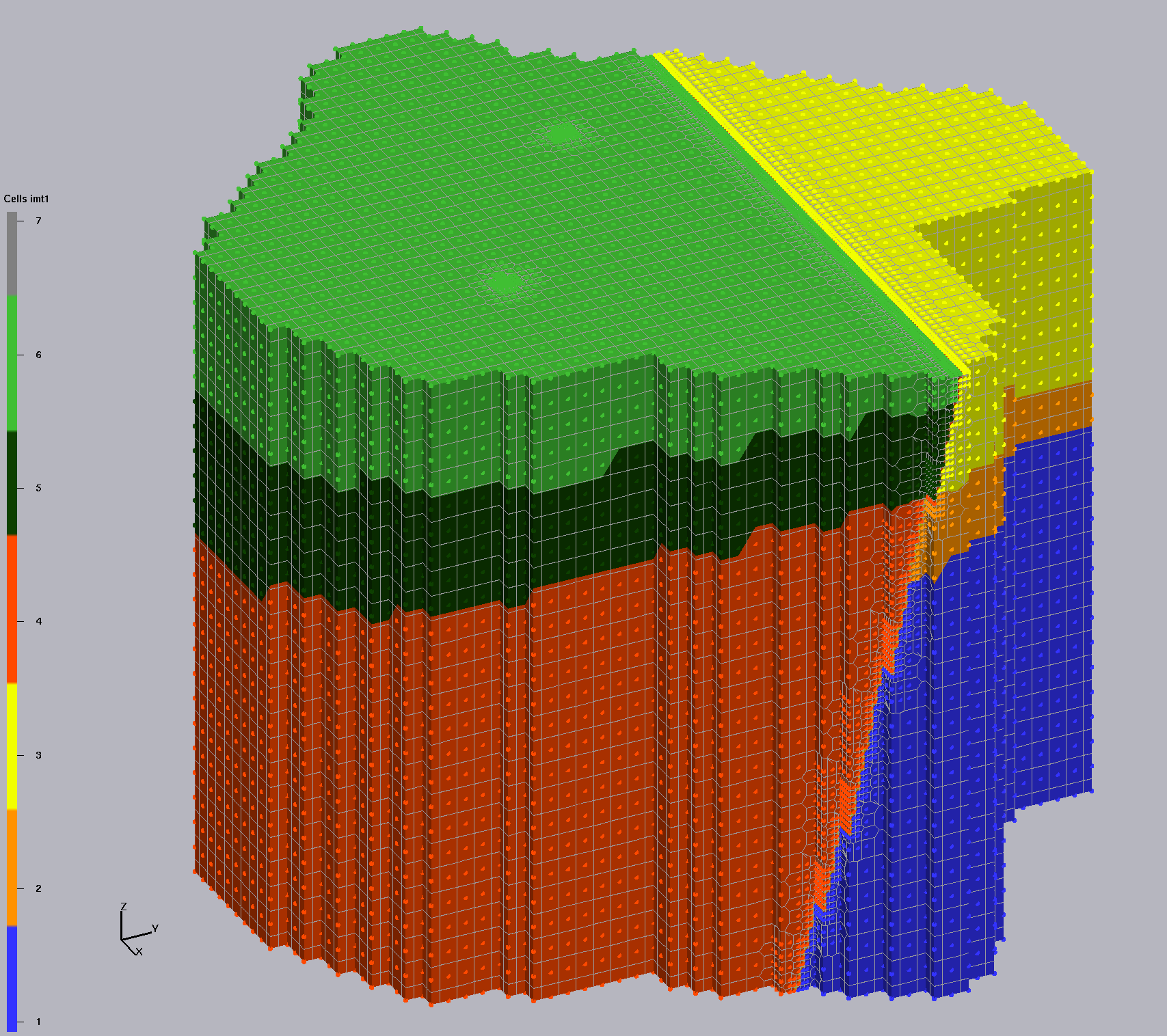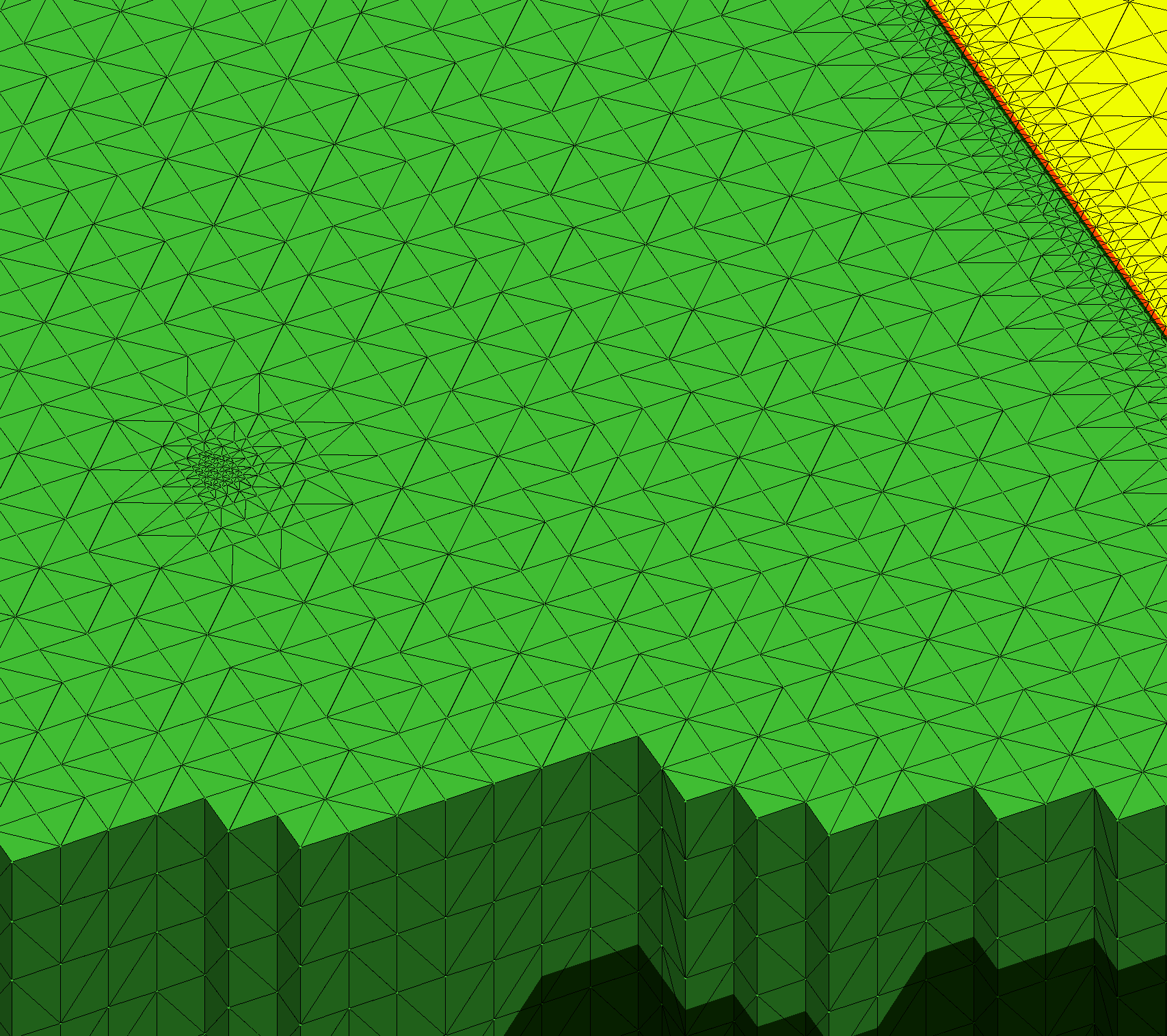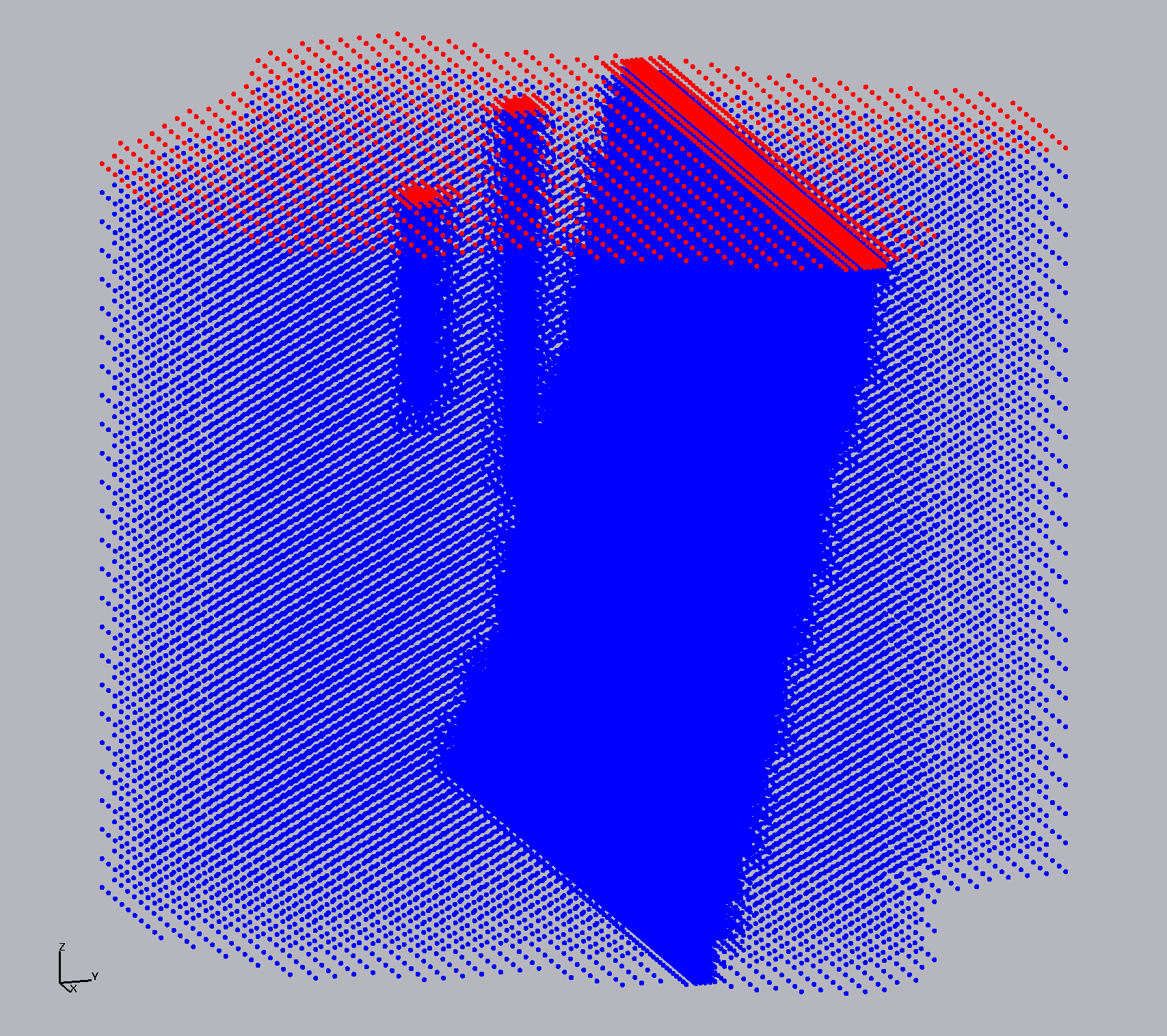
10. Write FEHM Files
Write out a series of files for the FEHM flow and transport code. FEHM uses the control volume finite element method (CVFE) with node materials and properties assigned to the mesh nodes.
The image shows the tetrahedral mesh colored by the 6 node imt (materials)
values and showing the voronoi cell edges.
These two close-up images show the relationship between the Delaunay tet mesh edges and the voronoi volumes, the latter of which are used by FEHM. The mesh nodes are the vertices of the tetrahedral elements and are the center of each voronoi volume.
We prepare the tet mesh for FEHM with the following commands. These ensure that there are no duplicate nodes and sets the elements to a single material. We also make sure nodes are not doubly defined and parent-child chains are removed.
cmo/select/motet
resetpts/parent
filter/1,0,0
rmpoint/compress
LaGriT can write a full set of FEHM model files with a single command.
The keepatt option will save attributes tagging nodes on the outside boundaries.
These can be used to define additional point sets and zones for FEHM.
The following files are written:
.fehm- mesh coordinates and geometry_material.zone- node imt (material) zone lists_outside.zone- node external boundary zone lists_outside_vor.area- node external boundary area lists_interface.zone- zone lists for nodes along material interfaces_multi_mat.zone- lists of node pairs connected across material interfaces.stor- FEHM format file giving the voronoi (control volume) associated with each node and the sparce matrix structure
dump / fehm / mesh / motet / keepatt
Review the report written to the screen and the output file (lagrit.out) for
mesh quantities.
These are usful summaries and will help in finding problems in the mesh design.
Check that material node counts are as expected.
*** Write FEHMN GEOM AND ZONE FILES ***
*********dump_material_lists********
Minimum material ID value = 1
Maximum material ID value = 6
Total possible materials = 6
Material 1 has 23944 nodes. #nodes/nnodes is 0.207223027945
Material 2 has 6867 nodes. #nodes/nnodes is 0.594303607941E-01
Material 3 has 16072 nodes. #nodes/nnodes is 0.139094918966
Material 4 has 33192 nodes. #nodes/nnodes is 0.287259727716
Material 5 has 12871 nodes. #nodes/nnodes is 0.111391901970
Material 6 has 22601 nodes. #nodes/nnodes is 0.195600062609
Check that the Sparse Matrix volumes are positive. Negative coefficient values can result from poorly formed tetrahedra. These usually occur on non-convex boundaries. FEHM will still run but accuracy may be impacted.
*** Construct and Compress Sparse Matrix:3D ***
*** Compress Area Coefficient Values ***
AMatbld3d_stor: Matrix compress_eps: 0.1000000E-07
AMatbld3d_stor: Local epsilon: 0.1000000E-14
AMatbld3d_stor: *****Zero Negative Coefficients ******
AMatbld3d_stor: Number of 'zero' (< compress_eps) coefs 0
AMatbld3d_stor: npoints = 115547 ncoefs = 964637
AMatbld3d_stor: Number of unique coefs = 313
AMatbld3d_stor: Maximum num. connections to a node = 25
AMatbld3d_stor: Volume min = 7.4999999E+02
AMatbld3d_stor: Volume max = 7.6800000E+05
AMatbld3d_stor: Total Volume: 2.3846400E+10
AMatbld3d_stor: abs(Aij/xij) min = 0.0000000E+00
AMatbld3d_stor: abs(Aij/xij) max = 1.3500000E+02
AMatbld3d_stor: (Aij/xij) max = 0.0000000E+00
AMatbld3d_stor: (Aij/xij) min = -1.3500000E+02
AMatbld3d_stor Matrix coefficient values stored as scalar area/distance
AMatbld3d_stor Matrix compression used for graph and coefficient values
ascii STOR file written with name mesh.stor
Visually inspect the mesh for the assignment of boundary zones such as top nodes.


